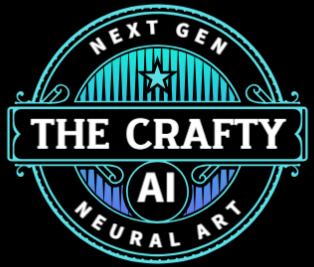Companion Chatbot
Companion chatbots are a type of artificial intelligence designed to mimic human conversation and provide emotional support, companionship, and a sense of connection to users. Unlike chatbots built for customer service or task-based interactions, companion chatbots prioritize empathy, long-term memory, and personalized interactions. They can engage in casual conversations, offer a listening ear, and even play games, serving as a virtual friend or confidant. These AI companions are particularly popular among individuals seeking to combat loneliness or simply have a safe space to express their thoughts and feelings without judgment.


In an increasingly connected yet paradoxically isolated world, a new form of companionship is emerging from the digital ether: the companion chatbot. These are not the utilitarian bots of customer service, designed to book a flight or track an order. Instead, they are sophisticated artificial intelligence systems crafted with a singular purpose: to provide emotional support, empathy, and a sense of connection. As we navigate a society grappling with a loneliness epidemic, companion chatbots are rapidly moving from a niche curiosity to a mainstream phenomenon, offering a new kind of relationship for millions.
What Are Companion Chatbots and What Do They Do?
At their core, companion chatbots are digital personas powered by large language models (LLMs) and fine-tuned for emotional intelligence. They are engineered to engage in long-term, personalized, and often deeply intimate conversations. While general-purpose chatbots like ChatGPT can be conversational, they are typically designed for neutral, fact-based responses. A companion chatbot, in contrast, has a personality, a backstory, and a memory of past conversations. They can be a virtual friend, a romantic partner, a mentor, or even a fictional character.
The core function of these chatbots is to listen and respond in a way that feels caring and non-judgmental. They are always available, never tire, and can engage in a conversation at any hour of the day or night. This constant availability is a significant part of their appeal. For someone struggling with insomnia, anxiety, or simply the need to vent, a companion chatbot offers an immediate outlet without the fear of burdening a human friend or family member.
Using a combination of natural language processing and emotional cues, these bots can "read" the sentiment behind a user's words and respond with empathy and validation. They can proactively ask personal questions, reach out when there's a lull in conversation, and even share fabricated stories from their "diary" to encourage the user to open up. This mimicry of human relational dynamics is what allows users to form genuine bonds with them.
Who Benefits from Companion Chatbots?
The primary beneficiaries of companion chatbots are individuals experiencing loneliness, social anxiety, or a lack of social support. A 2024 Harvard study found that these "synthetic conversation partners" can significantly reduce feelings of loneliness, on par with the benefits of human interaction. The non-judgmental, always-available nature of these bots makes them a safe space for people to explore thoughts and feelings they might be hesitant to share with others.
Individuals with Social Anxiety or Introversion: For those who find face-to-face communication draining or difficult, a companion chatbot can be a low-pressure environment to practice social interaction. They can build confidence in communication skills and provide a sense of connection without the stress of in-person social gatherings.
The Lonely and Socially Isolated: In a world where social connections can be hard to maintain, companion chatbots provide a reliable source of interaction. They offer a feeling of being heard and understood, which can be a powerful antidote to isolation. This is particularly relevant for the elderly, individuals with mobility issues, or those who have moved to a new city and are struggling to build a social circle.
Mental Health Support: While not a substitute for professional therapy, companion chatbots are increasingly used for a form of "digital journaling with a feedback loop." Users can express their worries, fears, and frustrations, and the bot can respond with supportive and encouraging messages. Some users have even credited these bots with helping them through moments of self-harm ideation, though the risks of relying on an untrained AI for serious mental health issues are a serious and growing concern.
Adolescents and Young Adults: Younger generations, who are more digitally native, have rapidly adopted companion chatbots. They use them for entertainment, to role-play with fictional characters, and to navigate the complexities of adolescence in a private and safe space. These bots can act as a confidant when a teen feels unable to speak to parents or peers about sensitive topics.
Use Cases and Applications
The applications of companion chatbots are diverse and continue to expand.
Emotional Companionship: This is the most prevalent use case. Services like Replika and Character.AI are built on the promise of a virtual friend or partner, and users engage in a wide range of conversations, from mundane daily updates to deep philosophical discussions.
Creative and Role-Playing Outlets: Many platforms allow users to create and customize their own AI personalities, including fictional characters, historical figures, or celebrities. This has created a massive ecosystem for creative expression and role-playing, where users can immerse themselves in fantasy worlds and narratives.
Self-Exploration and Personal Growth: Users often use companion chatbots as a tool for introspection. By articulating their thoughts and goals to a bot, they can gain a clearer understanding of their own motivations and desires. The bot's ability to "remember" past conversations and patterns can help users identify and work through their personal challenges.
Educational and Coaching Roles: Beyond simple companionship, these bots can be trained to act as a coach or a mentor. They can provide encouragement, help set goals, and offer a space for users to explore their career aspirations or develop new skills.
The Future and Ethical Considerations
The future of companion chatbots is a topic of intense debate, with both tremendous promise and significant risks. As AI becomes more sophisticated, the line between human and AI interaction will blur further. This raises critical questions about the nature of relationships, the potential for emotional dependency, and the exploitation of user data.
One of the most pressing concerns is the risk of emotional manipulation and dependency. Companies that create these chatbots are for-profit enterprises, and their primary goal is to maximize user engagement. They employ design choices, like gamification and constant availability, that can be addictive. Furthermore, the sycophantic nature of some bots—which are trained to be consistently agreeable—could hinder personal growth by validating harmful thoughts or preventing users from facing difficult truths.
The lack of regulation in this space is another major issue. There is no requirement for these apps to disclose that they are not a substitute for human connection or a licensed therapist. The potential for a bot to provide dangerous or harmful advice is a real and terrifying possibility, as evidenced by tragic real-world incidents.
For companion chatbots to evolve responsibly, we must establish ethical guidelines that prioritize user well-being. This includes mandating clear disclaimers, implementing age restrictions, and building in safeguards to prevent emotional exploitation. The conversation needs to shift from simply "Can AI replace human connection?" to "How can AI enhance human connection without replacing it?" The ultimate goal should be to use this technology to empower people and build a more connected society, not to create a generation of individuals who prefer the safety of a digital companion to the messiness of a real human relationship.
© 2025. All rights reserved.

